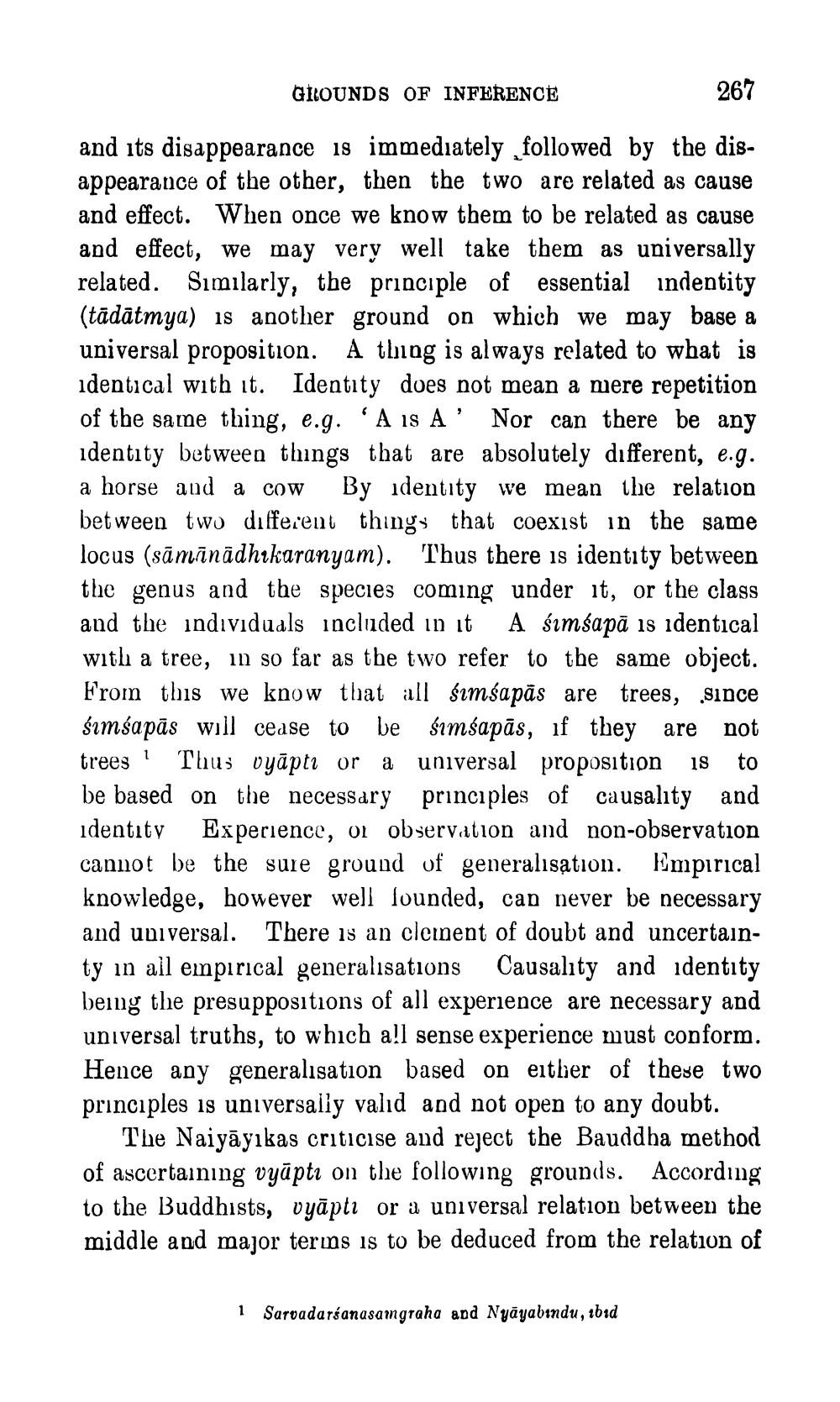________________
GHOUNDS OF INFERENCE
267
and its disappearance is immediately followed by the disappearance of the other, then the two are related as cause and effect. When once we know them to be related as cause and effect, we may very well take them as universally related. Similarly, the principle of essential indentity (tādātmya) is another ground on which we may base a universal proposition. A thing is always related to what is identical with it. Identity does not mean a mere repetition of the same thing, e.g. 'A is A' Nor can there be any identity between things that are absolutely different, e.g. a horse and a cow By identity we mean the relation between two different thinys that coexist in the same locus (sāmīnādhıkaranyam). Thus there is identity between the genus and the species coming under it, or the class and the individuals included in it A simšapā is identical with a tree, in so far as the two refer to the same object. From this we know that all simšapās are trees, since śimśapās will cease to be simsapās, if they are not trees? Thus vyāptı or a universal proposition is to be based on the necessary principles of causality and identity Experience, or observation and non-observation cannot be the sure ground of generalisation. Empirical knowledge, however well lounded, can never be necessary and universal. There is an element of doubt and uncertainty in all empirical generalisations Causality and identity bemg the presuppositions of all experience are necessary and universal truths, to which all sense experience must conform. Hence any generalisation based on either of these two principles is universally valid and not open to any doubt.
The Naiyāyıkas criticise and reject the Bauddha method of ascertaining vyāpti on the following grounds. Accordmg to the Buddhists, vyāptı or å universal relation between the middle and major terras is to be deduced from the relation of
1 Sarvadarśanasamgraha and Nyāyabindu, ibid




